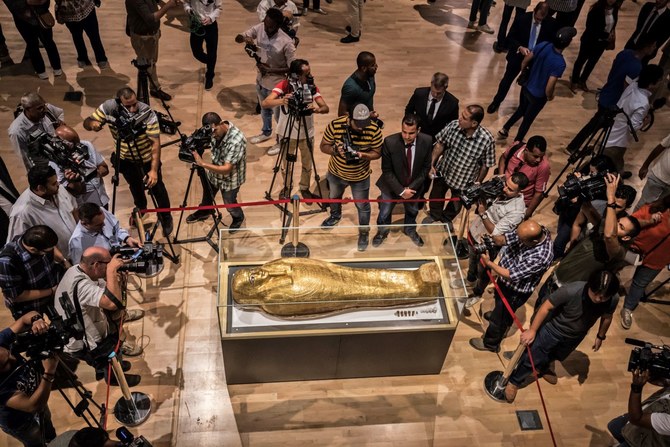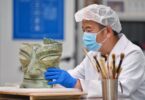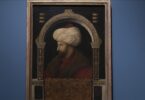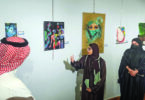Iain Akerman
LONDON: When Kim Kardashian attended the Met Gala in 2018, little did she know she was about to trigger a global investigation into the illicit trade in antiquities. The image of her next to a gold sarcophagus of the high-ranking Egyptian priest Nedjemankh went viral and soon attracted the attention of the Manhattan District Attorney’s Office. An investigation into its provenance followed, leading prosecutors to the 2011 Egyptian revolution.
During the unrest, the sarcophagus had been looted from Minya in Upper Egypt, smuggled to Paris, restored, and eventually sold to The Metropolitan Museum of Art in New York for $4 million.

“The Met purchased the item at a time when there were reports of looting in Egypt after the 2011 revolution,” says Deborah Lehr, the chairman and founder of the Antiquities Coalition. “If they had simply Googled the provenance records, they would have known it was falsified, as the export license was dated 1971 and bore the stamp ‘Arab Republic of Egypt’, which was not the name of the country at that time.”
The coffin was returned to Egypt in February 2019.

The unravelling of the mystery surrounding the gold sarcophagus provoked a global investigation into the trade in stolen antiquities. In May last year, Jean-Luc Martinez, a former president and director of the Louvre in Paris, was charged with complicity in fraud and money laundering. All charges relate to the trafficking of antiquities from Egypt and were upheld by a French appeals court in February. Martinez denies any wrongdoing.
Among the deals under investigation is the acquisition of a stone stele (slab) depicting the pharaoh Tutankhamun, which was purchased for the Louvre Abu Dhabi in 2016. That slab is believed to have been sold to the museum by Lebanese-German gallerist and art dealer, Roben Dib, and French antiquities expert Christophe Kunicki. Both were involved in the sale of the gold sarcophagus to The Met in 2017.
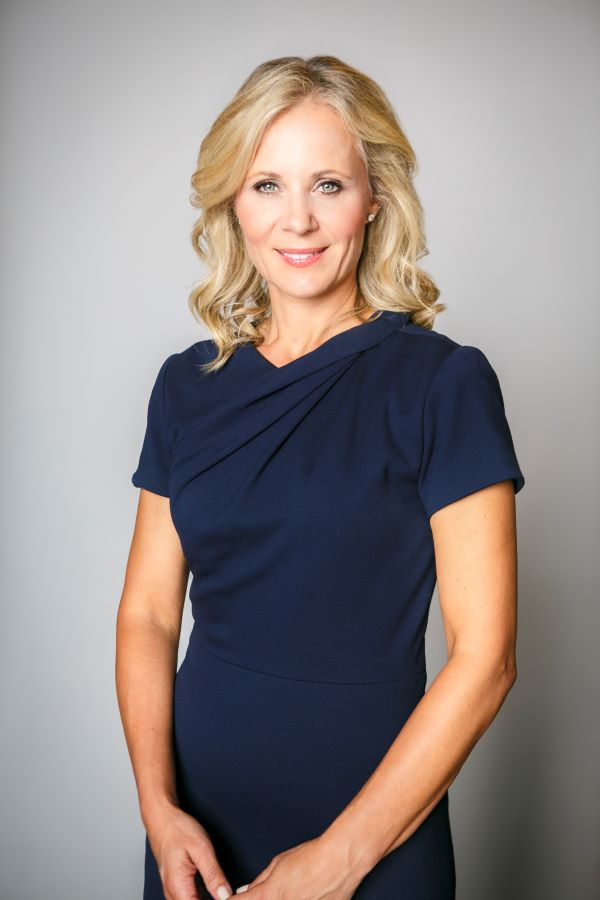
According to Lehr, this is just the tip of the iceberg, but gauging the true scale of the problem is difficult. The Antiquities Trafficking Unit within the Manhattan District Attorney’s Office, which was established in 2017, estimates that the total value of its seizures to date is over $375 million. Those seizures include 180 relics surrendered by the billionaire hedge fund tycoon Michael Steinhardt in 2021, valued at $70 million, which included artifacts stolen from Lebanon, Egypt and Iraq. Steinhardt had also previously owned a bull’s head from the Phoenician temple of Eshmun in Saida, which had been snatched from a facility in Byblos during the Lebanese Civil War. The head ended up at The Met and was repatriated to Lebanon despite legal challenges from its owners, Lynda and William Bierewaltes, in 2017.
“That’s just one market,” says Lehr, who is also the CEO of Edelman Global Advisory and vice chairman of the Paulson Institute. “For many years, it was viewed as a victimless crime by the big galleries, a lot of the auction houses, and the dealers. It was viewed as, ‘Nobody will notice, and if they do it’s just the price of doing business to return it.’”

The opposite is, in fact, true. Not only does the theft of antiquities rob communities of future economic opportunity around archaeological sites, it helps to fund entities such as Daesh. “They had a ministry of extraction,” explains Lehr. “One division was focused on oil and one division was focused on antiquities because they realized it was a very profitable business. They even had their own auction house.” It is because of its impact on national economies and global security that the Antiquities Coalition says a whole-of-government approach, as well as international cooperation, is necessary to combat cultural racketeering.
“Nobody listens to the minister of antiquities,” says Lehr. “They’re the weakest in the system. So if you want to address anything, it’s got to go to the ministry of foreign affairs, to defense or finance. You’ve got to get it onto their radar. Once it’s there, it gives us a chance to start to put the legal structures in place and to raise awareness. And we found as soon as we could talk to those people and show them that this isn’t just about your history being stolen, this is about economic opportunity, this is about some of the unrest that you’re seeing, then we got their attention. Then we started working with them and changing the legal structure, so at least if a crime is committed, they can address it.”
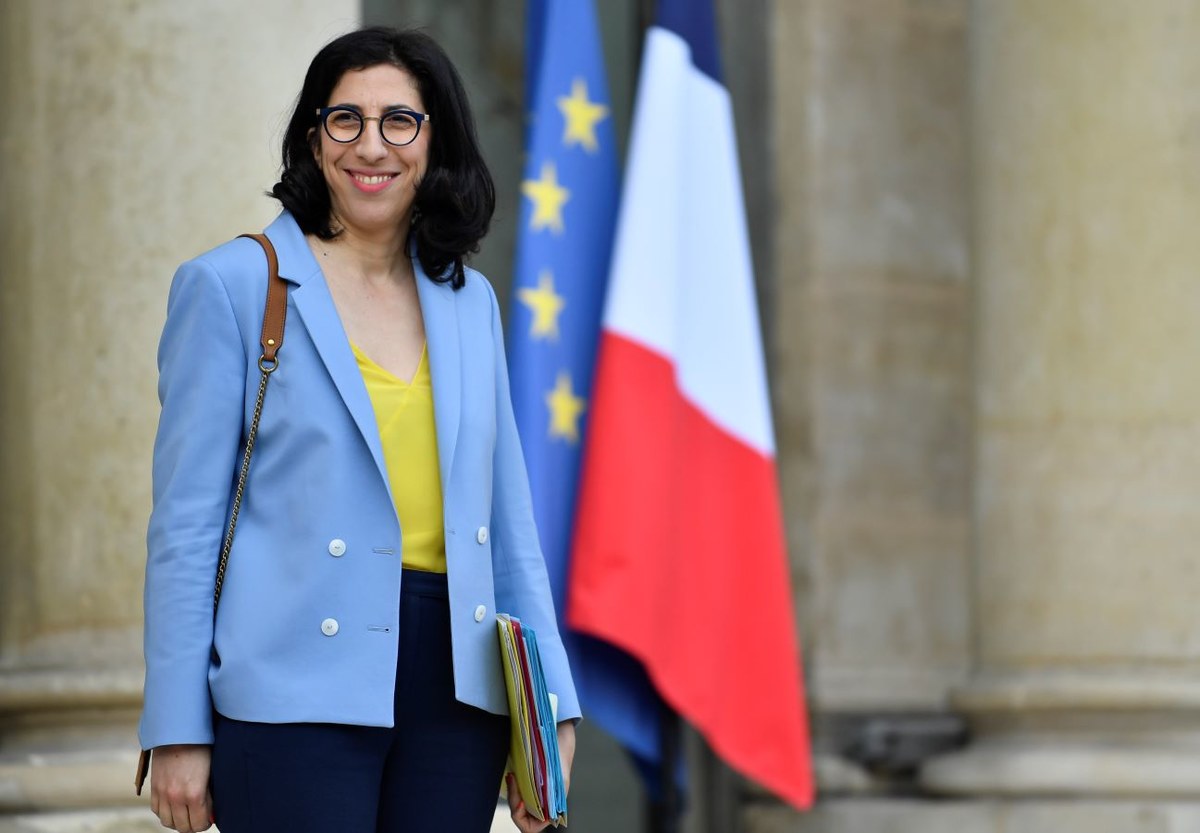
Previously a negotiator for the US government on intellectual property rights with China, Lehr’s interest in the illicit trade in antiquities was piqued by its blending of history and foreign policy. It was while working as a negotiator that she and her team began to painstakingly break down smuggling patterns. They found that the networks often began with local organized crime gangs working from lists supplied by dealers who, in turn, collaborated with academics, who knew what antiquities might be found in a particular area.
“They’re smuggled out, so you have professional smugglers who one day will be smuggling drugs, one day women, one day cigarettes, and one day antiquities,” says Lehr. “That process is often very similar and then it gets specialized at the middleman.” Middlemen such as Douglas Latchford, a British art dealer who was accused of trafficking looted Cambodian relics and falsifying documents in 2019. Although charges of wire fraud, smuggling and conspiracy were brought against him in New York, they were dismissed following his death in 2020. In June this year, Latchford’s daughter agreed to forfeit $12 million derived from the sale of stolen antiquities. She had previously returned 125 statues and gold relics to Cambodia.
“We’re not opposed to the antiquities trade, we’re just opposed to the trade in illegitimate items,” says Lehr, who formed the Antiquities Coalition in 2011 as an NGO dedicated to safeguarding the world’s heritage from cultural racketeering. “And it’s very hard sometimes to tell the difference. So we’re trying to work with institutions to encourage certain practices, including for auction houses, dealers and museums to have rigorous provenance research units.” In the wake of the scandal surrounding the Louvre, France’s Minister of Culture, Rima Abdul Malak, announced the formation of a commission to look into the legal framework and procedures relating to the acquisition of works. In May, The Met announced it was to hire a team dedicated to provenance research.
Lehr is also hoping that stronger penalties will be implemented for those found guilty of cultural racketeering. In the case of the Hobby Lobby scandal, in which representatives of the US-based arts and craft retailer knowingly falsified records for the import of Iraqi artefacts, a $3 million settlement was agreed upon. In contrast, Steinhardt, who is 82, only received a lifetime ban on acquiring antiquities.
“We are hoping that we will see some prison time in the near future because that is really what you have to have as a deterrent,” Lehr says.
Two antiquities from the region on the coalition’s ‘Most Wanted’ list are the Lion of Nimrud, which was looted from the Iraqi national museum in 2003, and an alabaster stone inscription from the Temple of Awwam in Yemen. The coalition is also working with governments across the Arab world to bring about meaningful change. It pushed for the 2016 signing of a memorandum of understanding between the US and Egypt, which restricted the import of certain archaeological relics, and works with the ministries of culture in Saudi Arabia and the UAE to raise awareness — AlUla is, after all, one of the world’s largest archaeological sites, and Dubai has (historically at least) been a transshipment point for the trade in illegal antiquities. Saudi Arabia is also seeking to play a leadership role in the fight against cultural racketeering and in the development and training of Arab archaeologists.
“Even though I don’t think Saudi Arabia or the UAE consider that they have a looting issue, they do have heritage to protect and being leaders on this issue is so important,” says Lehr. “The steps that they take around their collecting, and how they’re handling the excavations, is so important in setting an example, not just in the region, but globally.”
Courtesy: arabnews

